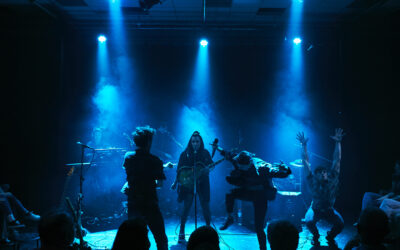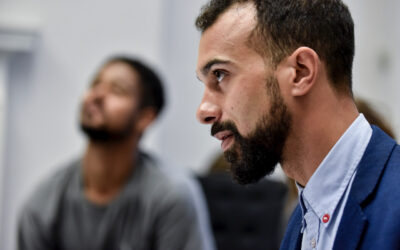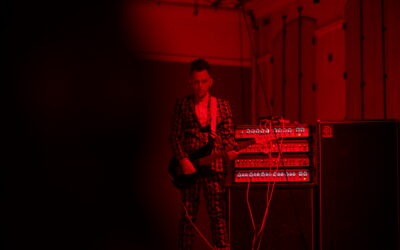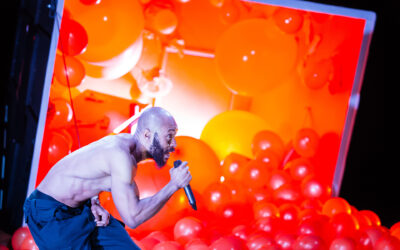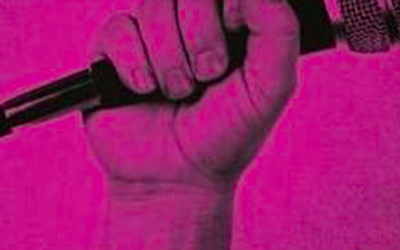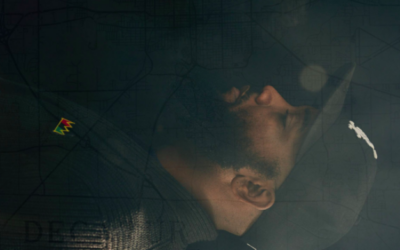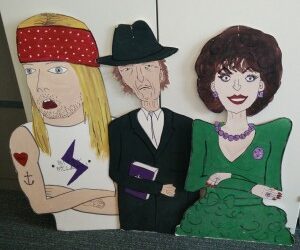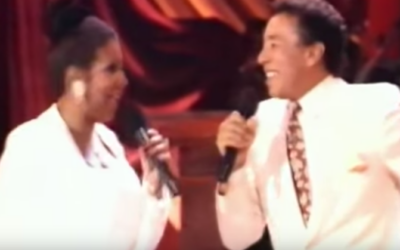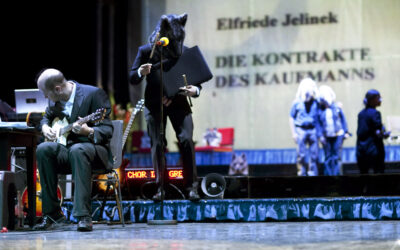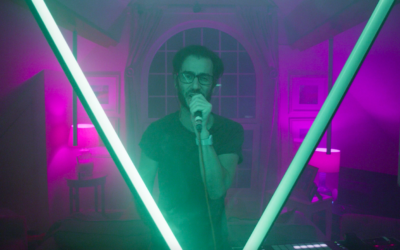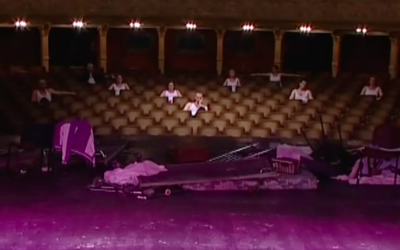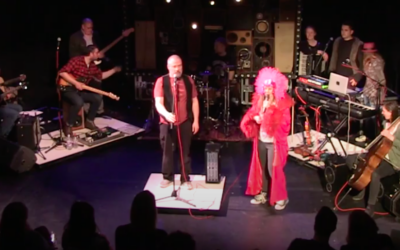#4 Gig Theatre
Rock and pop can be distinguished on a more-or-less objective basis: whereas rock derives historically from African-American roots in 1950s rock and roll, pop derives historically from the white popular music of the 1950s […]. The ideological distinction between rock and pop is precisely the distinction between the authentic and the inauthentic, the sincere and the cynical, the genuinely popular and the slickly commercial, the potentially resistant and the necessarily co-opted, art and entertainment. (Auslander 1999: 68-69)
The construction or reclamation of space for a group or a group event is a continual project, and indicates the extent to which DiY Culture is active, does want to move by practical example rather than rhetoric. (McKay 1998: 22)
Post-punk was an amateurist and autodidactic project that created a context for belief in your own incapacity rather than training or skill. […] Green Gartside of Scritti Politti said he wanted to make a music that was as uncertain and as unsure as he was. Post-punk invented ways to dramatize that uncertainty. (Eshun in Butt, Eshun, Fisher 2016: 12)
‘Gig Theatre’ as a label has emerged in the second decade of the 21st century, particularly in the United Kingdom, but increasingly featuring throughout the English-speaking world. The label has often been utilised by journalists – and sometimes by the artists themselves – to refer to a form of theatre that has the appearance of a music gig which at the same time tells a story through a combination of individual music numbers and spoken dialogue. Gig Theatre differs from the conventional stage musical in its affinity towards what Auslander has designated as ‘rock idology’ by contrast to pop music (1999) as well as its DIY aesthetic, quest for authenticity and a frequent eschewing of the bourgeois theatre-going conventions.
Its verbal association with ‘gig capitalism’ raises questions around the political genealogies and implications of this form, however any problematics in this respect would be implicit and are entangled with much longer socio-political histories. Certainly gig theatre is closer in spirit to the histories of British punk, Rock Against Racism and the DIY culture itself, in relation to which George McKay has asked: ‘Is DIY culture some kind of Thatcherism of the underground?’ (2000:17). So while gig theatre does not have much in common with the exploitative business models of Uber and Airbnb, it could certainly be understood in relation to the socio-political context of their origins.
In Lend Me Your Ears #4, far from being able to offer a fully comprehensive coverage of gig theatre, we establish some key coordinates consisting of a number of different intersections between theatre-making cultures, musics, histories, genres, politics and identities in order to tease out facets and motifs that characterise a shared desire by most of our interlocutors to depart into a new territory of theatre-making, find new languages for performance and scholarship, and communicate with the audiences differently.
Works Cited:
Auslander, Philip (1999) Liveness: Performance in a Mediatized Culture, Abingdon & New York: Routledge.
McKay, George (1998) DiY Culture: Party and Protest in Nineties’ Britain, London & New York: Verso.
Butt, Gavin; Eshun, Kodwo & Fisher, Mark (2016) Post-Punk Then and Now, London: Repeater.
The Gallery
The line up for Gallery #4 profiles artists arriving at the form of gig theatre from a number of different directions. Following the usual format of charting the developmental journey of an artist or a company, we trace the workographies of London-based north American theatre and music artist Chris Brett Bailey, London-born and bread DJ, activist and theatre director Matthew Xia and the English band/theatre company Little Bulb. A new addition to this format is a type of interview that focuses on a show which occurs at an intersection of a number of disparate artistic journeys and unites a variety of different artists on one off projects, such as actor/playwright Arinze Kené’s Misty, directed by Palestinian/Italian artist Omar Elerian, and Wildcard Theatre’s Electrolyte, directed by Irish director Donnecadh O’Briain. In this way, we begin to understand gig theatre outside of the confines of a single cultural context, as a manifestation of a confluence of artistic, cultural and thematic concerns and a deep commitment to shared values.
The Library
Library #4 circles back to ways of historising the inescapable interminglings and fusions of music, voice and performativity as a political means of redressing the balance and breaking new ground. Maltese scholar Krista Bonello introduces her deconstructionist reading of the punk turn in British comedy by deftly connecting the subject matter to a persisting influence of Shakespeare on the 20th century countercultures. In a forward-looking conclusion, professor of hip hop A.D. Carson outlines his rationale for redressing historical imbalance through a new powerful form of scholarship realised through his peer reviewed album i used to love to dream (2020), University of Michigan Press.
The Salon
This agenda extends to Salon #4 too which holds the space for three culturally disparate conversations. Stand-up comedian, historian and academic Olly Double banters with fellow comedian and broadcaster Josie Long about comedy, gender and race on the alternative circuit, traditionally shared in the UK by comedians and musicians. German scholars David Roesner and Katharina Rost interview Zürich-based German theatre director Nicolas Stemann about his specific brand of cross-breeding of alternative theatre and music-making. Meanwhile, from either side of the Pond, P.A. Skantze and Daphne Brooks contemplate a rich playlist for 2020 which illuminates how song can sustain us, carry us and care for us, with the help of the Black radical tradition, the political power of the lyric and the renewed responsibilities of scholarship: intellectual humility, curiosity, generosity and ‘tender criticism’.
The Laboratory
In Laboratory #4 we get a glimpse into the making processes of a selection of distinct pieces, all three of which touch on and deploy aspects of gig theatre from within the worlds of their own authentic concerns, thus delivering a number of unexpected variations of this form. Aural/Oral Dramaturgies Artist in Residence SK Shlomo’s initial idea to create a piece of rave theatre with director Matthew Xia for the Edinburgh Fringe 2020 gets stopped in its tracks by the Covid-19 lockdown and gradually morphs and transforms into a digital rave for BBC Culture in Quarantine. Croatian director Oliver Frljić pieces together the making of his 2008 production Turbofolk in which he examined a Serbian popular music genre as a manifestation of a state of mind, a taboo, an ideology and a theatrical lens on the society itself. The third case study in this Laboratory is Unfolding Theatre’s Putting the Band Back Together (2017) an exploration of the redeeming potential of gig theatre to mend broken dreams, offer a sense of belonging and overcome loss.


